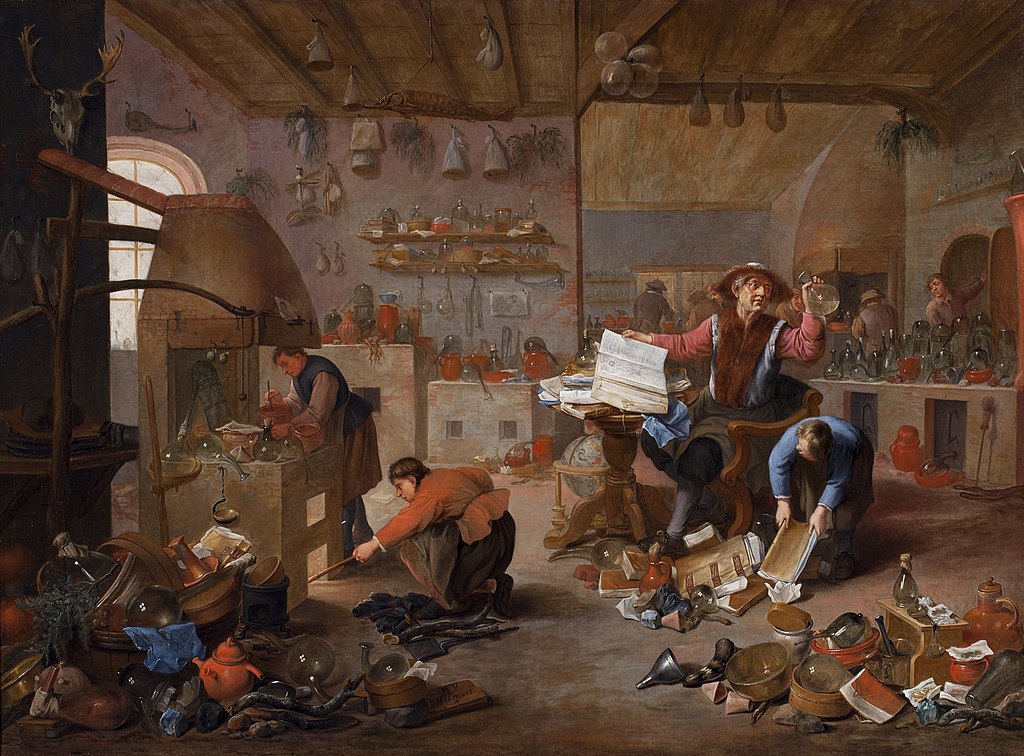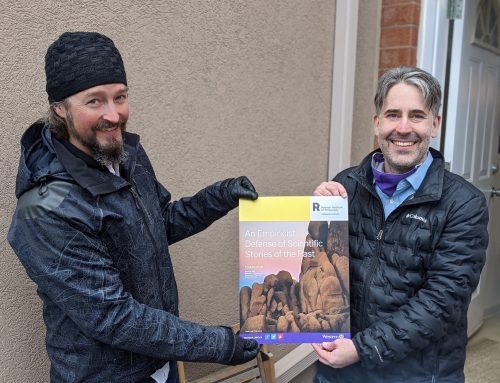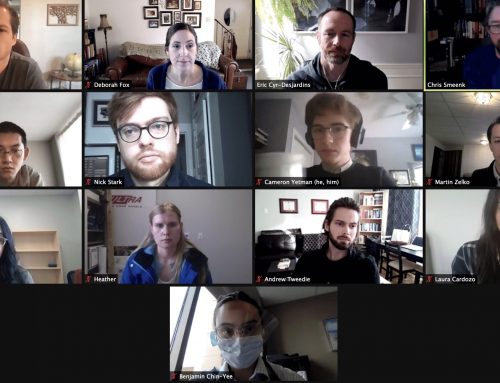James Mackey (MA, Western expected 2020) was assigned to me for a Rotman Summer Graduate Research Assistantship. Our project was to create in Zotero an annotated bibliography of recent work (works published since 2015) on 16th century natural philosophy. As many of you know well, the 16th century saw the birth of the Scientific Revolution. Scientific luminaries such as Copernicus (1473-1543), Galileo (1564–1642), and Kepler(1571–1630) all started writing and flourished during the long 16th century (through the early 1620s). And the writings of many others, who shone no less brightly during their day—Telesio (1509–88), Patrizi (1529–97), and Bruno (1548–1600)—helped to ignite the fires of that revolution. We now recognize that the “Age of Genius” is so-called that because the geniuses of the 17th century had the shoulders of the 16th century natural philosophers to stand upon. Natural philosophy during the 16th century was a rich and dynamic field, and current scholarship on it constantly moves at no lesser of a rapid pace. In the course of this project, James identified over 100 noteworthy scholarly pieces, totaling thousands of pages, published between 2015–20.
We divide the bibliography into 4 areas—Alchemy and Natural Magic; Astrology; Cosmology and Matter Theory; and Mechanics. We also devised a ranking system for the bibliography and used Zotero’s labeling system to classify entries as Tier One, Tier Two, or Tier Three. James added descriptive labels to supplement the items key terms so that entries can be immediate grouped according to subheadings (e.g., Galileo or Heliocentrism). Not only does this allow for easy, targeted searches, but because all the other key terms and descriptive labels intersecting with these articles are also displayed by Zotero, it also allows for deeper searches by flagging connections between articles. James also linked the PDF for the item to each entry so that everything is immediately accessible from the bibliography. And many entries, in addition to containing the key words, abstracts, and James’s descriptive labels, also contain James’s annotations as notes to the entry. James has created an information-rich resource that will greatly facilitate and speed research into this area for anyone with access to it. Moreover, it is a living resource, which can be updated as new scholarship appears, and expanded further to incorporate ranges of dates. Additional annotations can also be easily added as I work through the material.
The bibliographic project serves as a research resource for a monograph on 16th century philosophy that I am currently writing for Routledge. The book is about the whole of 16th century philosophy, but natural philosophy is a very important chapter for the book for the reasons mentioned above. Having ready access to such a rich resource is a huge time-saver. I’m very happy to now have it. I’m also very happy with the bibliography itself and the range of items it contains. Because this bibliography is set up as a group library in Zotero, I am happy to grant any Rotman member access to it. Please contact me at bhill28@uwo.ca if you wish to be added to the group.
Because this is a graduate student placement, as important as the deliverable are the learning outcomes of the placement, in my estimation; a GRA should directly contribute to the student’s own professional and philosophical development and training. I’m very pleased to report that this placement contributed to James’s development in the following two ways. First, James’s familiarity and competency with bibliographic management systems, and with Zotero in particular, increased considerable. James is now quite adept with Zotero, and the placement gave him the opportunity to dive deeply enough into it that he can fully see their power to contribute to research time and productivity. Moreover, because of the Rotman’s generosity, he was able to achieve this insight at the very beginning of his PhD study. I was extremely pleased to hear from him that he intends to use Zotero as he works on projects for his PhD courses and prepares for his thesis project. In my experience, it is usually only at the thesis stage that students come to this realization about bibliographic management systems, if at all, and fewer still take the time to dive deep and become as adept with them as James has. The contribution of this Rotman GRA to James’s research capabilities is clear and significant. But there’s more. The project also contributed to James’s cognitive and epistemic development in that it greatly increased and improved his understanding of the main themes and the contours of 16th century natural philosophy. If we think of the historical material as a landscape, James reports that his personal cognitive map of the material evolved from being a blank terra incognita to a roughly filled-in map showing the main features and basic contours of the landscape. It is sufficiently filled-in so that he can orient himself relative to the main philosophical issues and developments of the age as well as among the key personalities animating those developments. All this comes largely from reviewing titles, TOCs, and key words as well as reading abstracts of articles. I suspect that James’s understanding of the landscape composing the secondary literature is similarly filled-in—who are the more important scholars; what are the key interpretative issues; and who works on whose thought—though James and I did not specifically discuss that. Not bad for a 50-hour bibliographic project, if you asked me.
I’m very pleased to see how much this Rotman Summer GRA position has contributed to James’s development and how well it has positioned him to start his PhD career in September. I’d like to thank the Rotman Institute for Philosophy for making the GRA possible and I would like to thank the former Acting Director Anthony Skelton in particular for supporting it. I would also like to thank Western’s Department of Philosophy and Chair Carolyn McLeod for spearheading this excellent initiative.
Pictured above:
The Alchemist by Mattheus van Helmont (Wikimedia Commons)






